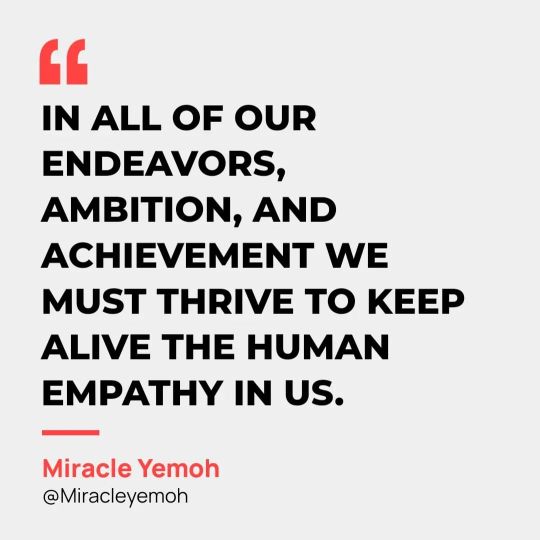#EmpathyInBusiness
Text
Journey into Oneness: Exploring Advaita Vedanta's Teachings and Its Relevance in Business

Hook:
Advaita Vedanta, an ancient philosophical school rooted in the Vedic tradition, offers profound insights into the nature of reality, consciousness, and the self. Central to its teachings is the principle of oneness (Advaita), which asserts the fundamental unity of the individual soul (Atman) with the ultimate reality (Brahman). This article delves into the core teachings of Advaita Vedanta and explores how businesses can incorporate its principles to foster harmony, collaboration, and success.
Understanding Advaita Vedanta's Teachings:
Advaita Vedanta posits that the perceived duality in the world is an illusion (Maya), obscuring the underlying unity of all existence. At the heart of this philosophy is the concept of Brahman, the ultimate reality that transcends all forms, attributes, and limitations. Brahman is pure consciousness, existence, and bliss, the substratum of all creation.
On the individual level, each soul (Atman) is not separate from Brahman but a manifestation of the same divine essence. The journey of self-realization in Advaita Vedanta involves transcending the egoic self and recognizing one's true nature as infinite, eternal, and interconnected with all of existence.
Relevance in Business:
In the realm of business, the principles of Advaita Vedanta can be instrumental in fostering a culture of unity, empathy, and ethical leadership. By embracing the concept of oneness, businesses can transcend competitive mindsets and cultivate environments that prioritize collaboration, mutual respect, and shared success.
Cultivating Unity and Collaboration:
Incorporating the principle of oneness in business practices encourages teams to work harmoniously towards common goals. Leaders can inspire a sense of interconnectedness and shared purpose, motivating employees to collaborate, innovate, and contribute to the collective success of the organization.
Enhancing Empathy and Compassion:
Recognizing the inherent oneness of all beings fosters empathy and compassion in business dealings. By viewing stakeholders – including employees, customers, suppliers, and the community – as interconnected parts of the same ecosystem, businesses can make decisions that prioritize well-being, sustainability, and social responsibility.
Fostering Ethical Leadership:
Oneness teachings emphasize the importance of ethical conduct, integrity, and selflessness. Leaders who embody these principles create cultures of trust, transparency, and accountability. By prioritizing ethical leadership, businesses can build strong reputations, attract loyal stakeholders, and sustain long-term success.
Practical Toolkit for Incorporating Oneness Principles in Business:
Mindfulness and Self-Reflection:
Encourage employees to engage in mindfulness practices such as meditation and self-reflection to cultivate self-awareness and emotional intelligence. This helps individuals transcend ego-driven behaviours and align their actions with the principles of oneness.
Collaborative Decision-Making:
Implement collaborative decision-making processes that value diverse perspectives and foster collective wisdom. This encourages innovation, inclusivity, and shared ownership of business outcomes.
Ethical Business Practices:
Adopt ethical business practices that prioritize fairness, transparency, and social responsibility. This includes ethical sourcing, sustainable operations, and community engagement initiatives that benefit all stakeholders.
Leadership Development:
Invest in leadership development programs that focus on cultivating values-based leadership skills. Provide training and mentorship opportunities that empower leaders to inspire, motivate, and guide their teams with integrity and compassion.
Food For Thought:
Journeying into the oneness teachings of Advaita Vedanta offers profound insights that can transform the way businesses operate, lead, and succeed. By embracing unity, cultivating empathy, and fostering ethical leadership, organizations can create cultures that thrive on collaboration, innovation, and shared prosperity. Through practical tools and mindful practices, businesses can align their operations with the timeless principles of oneness, contributing to a more harmonious and sustainable world.
#AdvaitaVedanta#OnenessTeachings#BusinessTransformation#UnityInBusiness#EthicalLeadership#CollaborativeCulture#EmpathyInBusiness#SharedSuccess#HarmoniousWorkplace#MindfulLeadership#SustainableBusiness#Interconnectedness#CulturalRevolution#ValuesBasedLeadership#ConsciousBusiness
0 notes
Text
Mastering the Art of Effective Communication in Business
In the fast-paced world of business, communication plays a pivotal role in success. Whether you're interacting with clients, colleagues, or stakeholders, the ability to convey your message clearly and effectively can make or break a deal. In this blog post, we'll delve into the importance of effective communication in business and provide practical tips to help you master this essential skill.
1. Clear Communication Breeds Understanding: Ambiguity is the enemy of progress in business. When communicating with others, strive for clarity and precision. Clearly articulate your ideas, objectives, and expectations to ensure everyone is on the same page. Avoid jargon and technical language that may confuse your audience, and instead, opt for straightforward and concise communication.
2. Active Listening: Effective communication is a two-way street. While it's crucial to express your thoughts and ideas clearly, it's equally important to listen actively to others. Pay attention to what others are saying, ask clarifying questions, and demonstrate empathy and understanding. Active listening fosters trust and collaboration, laying the foundation for productive relationships in business.
3. Choose the Right Medium: In today's digital age, we have a plethora of communication tools at our disposal, from email and instant messaging to video conferencing and social media. Choose the communication medium that best suits the nature of your message and the preferences of your audience. For complex or sensitive discussions, face-to-face meetings or video calls may be more appropriate, whereas quick updates or non-urgent queries can be handled via email or messaging apps.
4. Be Mindful of Non-Verbal Cues: Communication is not just about the words we speak; it also encompasses non-verbal cues such as body language, facial expressions, and tone of voice. Pay attention to your non-verbal communication, as it can convey subtle messages and impact how your message is received. Maintain eye contact, use open and welcoming body language, and modulate your tone to match the context of the conversation.
5. Seek Feedback and Adapt: Continuous improvement is key to mastering any skill, including communication. Seek feedback from colleagues, mentors, or trusted advisors to identify areas for improvement and refine your communication style accordingly. Be open to constructive criticism and willing to adapt your approach to better meet the needs of your audience.
6. Practice Empathy: Empathy is the ability to understand and share the feelings of others. In business, empathetic communication involves putting yourself in the shoes of your audience and considering their perspectives, concerns, and emotions. By demonstrating empathy in your communication, you can build rapport, foster trust, and strengthen relationships with clients, colleagues, and stakeholders.
7. Clarify Expectations: Miscommunication often arises from unclear or mismatched expectations. When initiating a project or task, take the time to clarify expectations regarding roles, responsibilities, deadlines, and deliverables. This helps prevent misunderstandings and ensures everyone is aligned on what needs to be accomplished.
In conclusion, effective communication is the cornerstone of success in business. By mastering the art of communication, you can enhance collaboration, build strong relationships, and drive positive outcomes for your organization. Incorporate these tips into your communication strategy, and watch as your business thrives in today's competitive landscape.
#businesscommunication#communicationtips#effectivecommunication#businessskills#professionaldevelopment#leadershiptips#teamwork#collaboration#businesssuccess#empathyinbusiness
0 notes
Text
Der Schlüssel zum Erfolgreichen Marketing! 🚀
🤔 #CustomerCentricity #PainPoints #MarketingInsights
Wir alle stehen vor Herausforderungen, sei es im persönlichen Leben oder im Business. Diese Herausforderungen sind unsere "Pain Points" - Bereiche, in denen wir Unterstützung benötigen. Als Unternehmen ist es entscheidend, die Pain Points deiner Zielgruppe zu verstehen, um Lösungen zu bieten, die wirklich einen Unterschied machen.
**1. Aktiver Zuhörer werden:
Höre deiner Zielgruppe aufmerksam zu, sei es durch Umfragen, Social-Media-Feedback oder direkte Interaktion. Schaffe einen Raum, in dem Menschen ihre Herausforderungen teilen können.
**2. Passe deine Angebote an:
Richte deine Produkte oder Dienstleistungen gezielt auf die Schmerzpunkte deiner Zielgruppe aus. Zeige klar auf, wie deine Lösungen ihre spezifischen Bedürfnisse ansprechen.
**3. Teile Erfolgsgeschichten:
Erzähle Geschichten von Kunden, die dank deiner Produkte oder Dienstleistungen ihre Pain Points überwunden haben. Authentische Erfahrungen schaffen Vertrauen und zeigen den realen Nutzen.
**4. Biete Mehrwert durch Content:
Teile wertvolle Informationen, die die Pain Points deiner Zielgruppe ansprechen. Sei eine Quelle der Unterstützung und Wissensvermittlung.
💬 Welche Pain Points haben in deinem Bereich besonders hervorgestochen? Lass uns darüber sprechen und voneinander lernen! 💬
1 note
·
View note
Text
8 Proven Strategies for Building Powerful and Positive Relationships at Work
Building effective relationships with co-workers and superiors is critical to a harmonious and productive work environment. Strong professional relationships foster cooperation, communication and mutual support, enabling individuals and teams to achieve their goals more effectively. In this article, we’ll explore strategies and tips for establishing and nurturing positive relationships with colleagues and superiors.
#RelationshipsAtWork#PositiveWorkplace#BuildingConnections#TeamBuilding#WorkplaceHarmony#CommunicationSkills#Collaboration#EmpathyInBusiness
0 notes
Text

🚀✨ Hey there, it's Joe Nicassio, your go-to business coach! I've got something crucial to share, and trust me, you'll want to hear this. 🤩👂
🔥 Founders, listen up! When starting a new business, there's a common trap: focusing on your passion rather than what truly brings VALUE to your customers. 💡💼
🤦♂️ It's an easy mistake - getting wrapped up in what WE love, rather than tuning into the heartbeat of our customers' needs. This 'me-first' approach? It leads to the dreaded LOW or NO SALES zone. 😱💸
👉 But here's the game-changer: Fall head over heels in LOVE with your customers. 🥰👥 See the world through THEIR eyes. What do they VALUE? What will they happily pay for?
🌟 Imagine this: more sales, thrilled customers, and your business on rock-solid ground. 💪💰 That's the power of EMPATHY and true customer connection!
🔍 So, next time you're crafting a product, service, or experience, pause. Look through your customer's lens, not just your own. 🕶️👀
🔑 Want to know the secret sauce for aligning your offerings with what customers will eagerly pay for? 🤔💫
Type “VALUE CONNECTION” below ⬇️, and I'll send over my exclusive 'Value Connector Worksheet'. It's the very tool I use with my top clients, and it's a game-changer for any business! 📈📚
Let's make your business not just good, but extraordinary! 🌟🙌
#BusinessCoaching #CustomerValue #JoeNicassio #EmpathyInBusiness

3 notes
·
View notes
Text
Emotional intelligence (EI) is a crucial skill set in the business world. It refers to the ability to recognize, understand, and manage emotions in oneself and others effectively. EI plays a significant role in building relationships, making sound decisions, and achieving success in various professional endeavors. Here are some key points about emotional intelligence in a business context:
1. Self-awareness: This is the foundation of emotional intelligence. It involves recognizing and understanding your own emotions, strengths, weaknesses, values, and goals. Self-awareness allows you to accurately assess your impact on others and make conscious choices about your behavior and responses.
2. Self-regulation: Once you are aware of your emotions, self-regulation comes into play. It involves managing and controlling your emotions, impulses, and reactions in different situations. Self-regulation enables you to remain calm, adaptable, and resilient, even in challenging circumstances.
3. Social awareness: Emotional intelligence also involves being attuned to the emotions and needs of others. Social awareness includes empathy, which is the ability to understand and share the feelings of others. By being socially aware, you can develop strong interpersonal relationships, anticipate reactions, and navigate social dynamics effectively.
4. Relationship management: Building and maintaining positive relationships is crucial in business. Relationship management encompasses skills such as effective communication, conflict resolution, teamwork, and collaboration. It involves using emotional intelligence to inspire and influence others, build trust, and navigate interpersonal challenges.
5. Leadership effectiveness: Emotional intelligence is particularly important for leaders. Leaders who possess high emotional intelligence are more likely to inspire and motivate their team members, foster a positive work environment, and effectively manage conflicts. They can also make better decisions by considering both rational and emotional aspects.
6. Customer service and sales: Emotional intelligence plays a vital role in customer service and sales interactions. Being empathetic and understanding customers' emotions and needs can help build rapport, resolve issues, and deliver excellent customer experiences. Sales professionals with high emotional intelligence can adapt their approach, understand customer motivations, and build trust to increase sales effectiveness.
7. Conflict resolution: Emotional intelligence helps in resolving conflicts and managing disagreements constructively. By understanding and managing emotions, individuals can approach conflicts with empathy, active listening, and open-mindedness. They can find win-win solutions and maintain positive relationships, even in challenging situations.
8. Decision-making: Emotions can influence decision-making processes. Emotional intelligence helps individuals make more informed decisions by considering both logical reasoning and emotional factors. By understanding their own emotions and recognizing biases, individuals can make better choices that align with their values and goals.
Overall, emotional intelligence is a valuable skill in the business world. It enhances personal effectiveness, strengthens relationships, and contributes to better decision-making and leadership. Developing and nurturing emotional intelligence can lead to improved individual and organizational outcomes.
#EmotionalIntelligence #BusinessEQ #EmotionalIntelligenceInBusiness #EQSkills #LeadershipSkills #SelfAwareness #SocialAwareness #RelationshipManagement #Teamwork #CustomerExperience #ConflictResolution #DecisionMaking #EffectiveCommunication #EmpathyInBusiness #LeadershipDevelopment #EmotionalIntelligenceTraining #BusinessSuccess #WorkplaceWellness #PositiveWorkCulture #BusinessMindse

0 notes
Photo

As leaders, It's not enough to be charismatic and knowledgeable without human empathy. What qualifies a leader as a leader isn't because he has achieved a lot or has been satisfied as a leader, but his ability to understand that the end of leadership and the life of a man is the well-being of people. The greatest footprint is that which is we leave in the heart of people, not the structures we build on earth. . . . . #empathymatters #empathy #empathyforlife #empathyquotes #compassion #emotionalintelligence #kindness #empathetic #kindnessmatters #empathstruggles #empathyinaction #empathymakesushuman #bekind #leadership #vulnerabilityisstrength #compassionate #psychology #empathyforall #empathyinbusiness #chooseempathy #itsokaytonotbeokay #empathyposts #listen #gratitudejournal #compassionforall #leader #people #leaders https://www.instagram.com/p/CYl6ErZKKYs/?utm_medium=tumblr
#empathymatters#empathy#empathyforlife#empathyquotes#compassion#emotionalintelligence#kindness#empathetic#kindnessmatters#empathstruggles#empathyinaction#empathymakesushuman#bekind#leadership#vulnerabilityisstrength#compassionate#psychology#empathyforall#empathyinbusiness#chooseempathy#itsokaytonotbeokay#empathyposts#listen#gratitudejournal#compassionforall#leader#people#leaders
0 notes
Photo

How I interpret this quote is basically “Empathize before you judge” comment with your interpretation or your thoughts 💭 #elainerau #Ladybossblogger . . . . . #Empathy #empathyforlife #empathyforanimals #EmpathyAndEyebrows #empathyminecraft #empathyposts #empathyminecraftserver #empathyminecraftacademy #empathymuseum #empathyMVP #empathynyc #empathythroughmusic #empathytest #EmpathyOverMaterialism #empathypoetry #empathysoulproject #empathytech #empathymatters #empathyalways #EmpathyAndCompassion #empathybelches #empathycards #empathydoll #empathyeducation #empathyforall #empathygallery #empathyinbusiness #empathymakesushuman (at 桃園國際機場 Taoyuan International Airport) https://www.instagram.com/p/BwDxD8CgEjA/?utm_source=ig_tumblr_share&igshid=sdmg8aoznojy
#elainerau#ladybossblogger#empathy#empathyforlife#empathyforanimals#empathyandeyebrows#empathyminecraft#empathyposts#empathyminecraftserver#empathyminecraftacademy#empathymuseum#empathymvp#empathynyc#empathythroughmusic#empathytest#empathyovermaterialism#empathypoetry#empathysoulproject#empathytech#empathymatters#empathyalways#empathyandcompassion#empathybelches#empathycards#empathydoll#empathyeducation#empathyforall#empathygallery#empathyinbusiness#empathymakesushuman
0 notes
Link
A positive brand attitude results from a variety of contributing factors. These days the actual quality of the product/service or specs/features actually sit at the bottom of that list.
▼ Reshared Post From SpellBrand® - Brand Agency ▼
How a positive brand attitude is critial
What kind of attitude do your customers have towards your brand?
Do they like your brand or dislike it? One could argue that if they are buying from us, they should like the brand. But in reality this is far from the truth. For most businesses, customers actually do not like their brand and have a distaste and yet continue to buy because of various factor such as convenience, lack of options and so on.
Read full article at http://www.spellbrand.com/positive-brand-attitude
#branding #brandingstrategy #positiveattitude #empathyinbusiness
http://click-to-read-mo.re/p/6Zvd
0 notes
Link
How a positive brand attitude is critial
What kind of attitude do your customers have towards your brand?
Do they like your brand or dislike it? One could argue that if they are buying from us, they should like the brand. But in reality this is far from the truth. For most businesses, customers actually do not like their brand and have a distaste and yet continue to buy because of various factor such as convenience, lack of options and so on.
Read full article at http://www.spellbrand.com/positive-brand-attitude
#branding #brandingstrategy #positiveattitude #empathyinbusiness
http://click-to-read-mo.re/p/6ZuT
0 notes